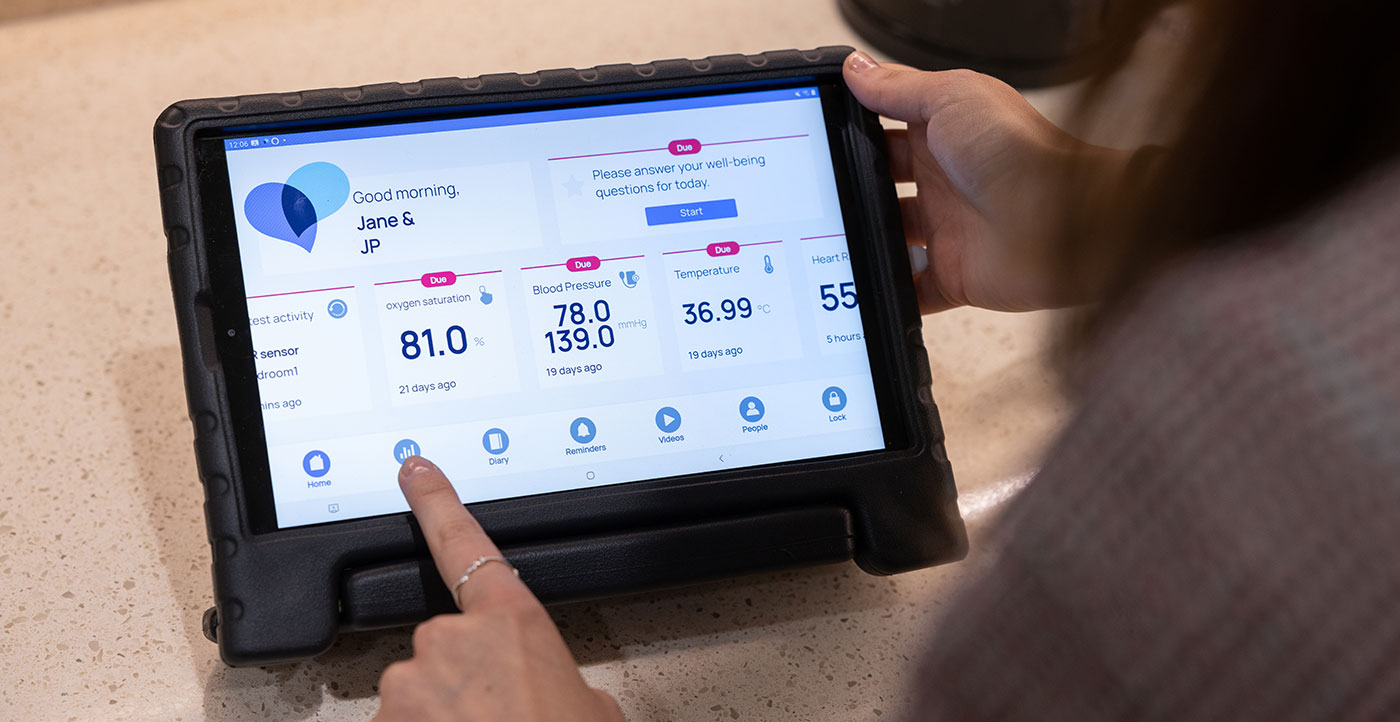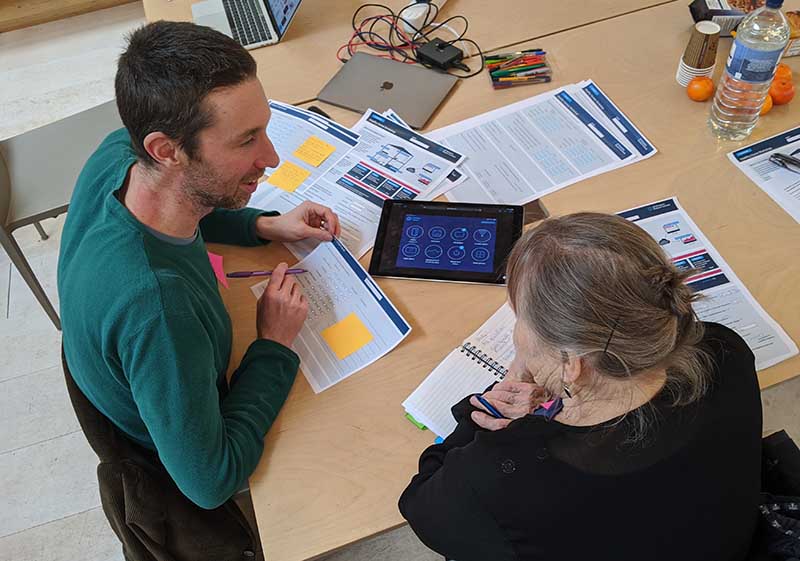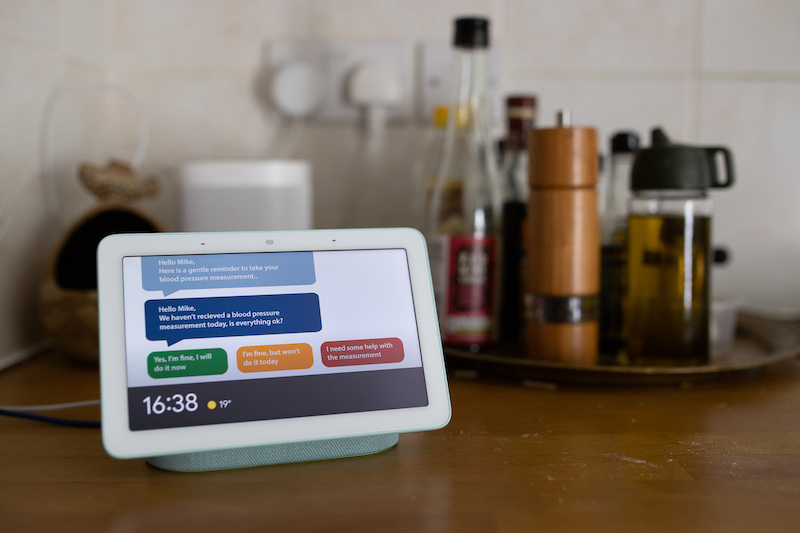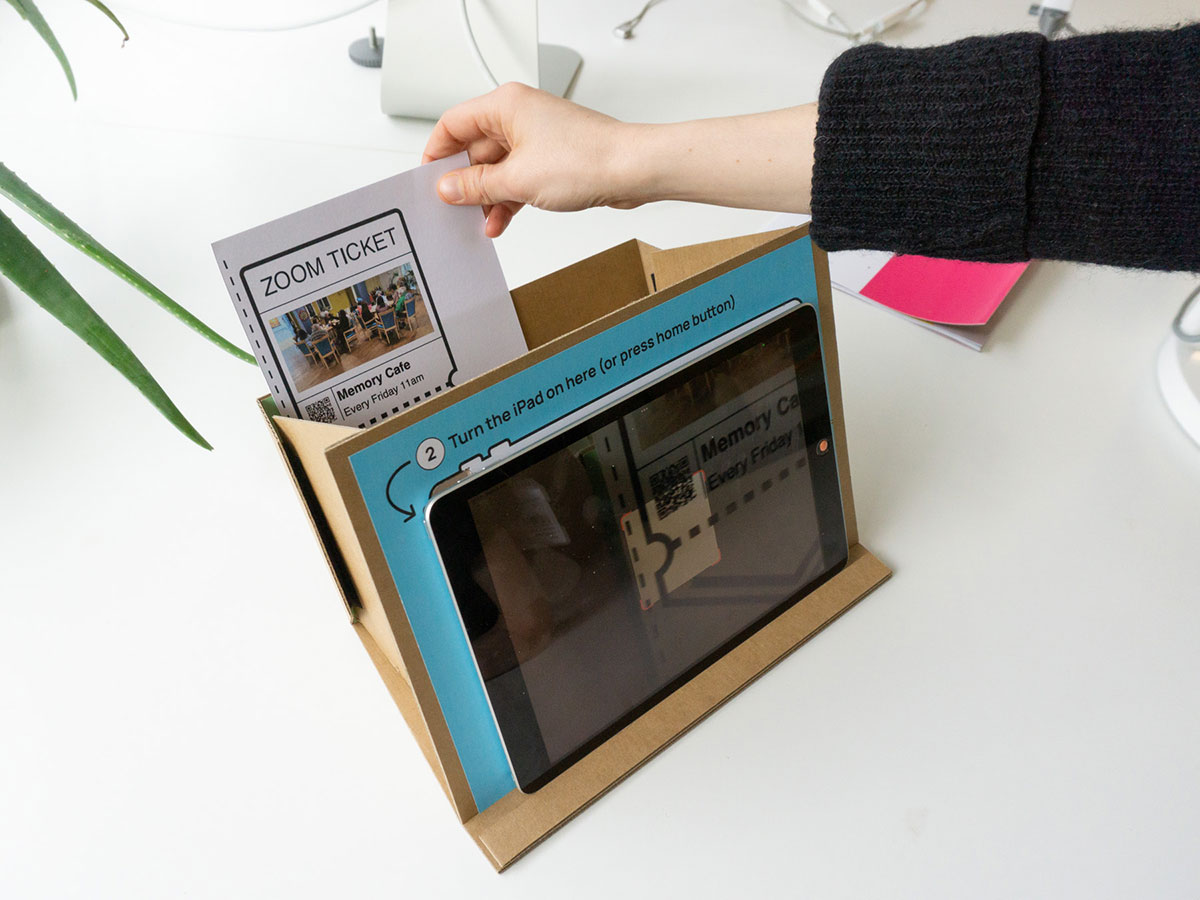
Dementia care
Human-centred design within dementia research and dementia care
Dementia is one of the biggest healthcare challenges facing developed and ageing societies in the coming decades. There are around 850,000 people living with dementia in the UK, and it is emerging as the leading cause of death. As we live longer, and increasingly manage and survive other diseases, the prevalence of dementia will increase. Notably, dementia has been the most common pre-existing condition for people who died from COVID-19.
Dementia is a physical disease, but with few therapies available, it is largely treated as a social condition and managed outside of the healthcare system. As such, it puts huge responsibilities on Local Authorities and family carers to both fund and provide care to people in their own homes, and when that is no longer manageable, in care homes. The good news is that there is increasing funding and opportunity in the UK, supported by the government, to find cures and social innovations to combat dementia. National policy is also increasingly focused on better integration between health and social care, such as Integrated Care Systems, which have the potential to drastically improve the way people living with dementia are supported.

User testing with a carer
Human-centred design has an exciting role to play in bringing medical advances and social innovations in dementia care to life, by ensuring that solutions meet the complex health and social needs of the people they are intended to help. Smart homes, machine learning and new paradigms brought on by home working through internet-enabled technologies combine to offer exciting opportunities, if they can be made accessible to the right demographic.
Through collaboration with colleagues at Imperial College London and with other research partners, Helix has established a programme of translational research in dementia:
Minder - smart home for dementia research
An introduction to the Living Lab at the Care Research and Technolgoy Centre, where we test technologies before installing them in people's homes.
Helix Centre works across the UK Dementia Research Institute Care Research & Technology Centre (CR&T) at Imperial College London to bring a Human-centred design approach to a broad range of technology innovations within the centre.
The CR&T is a new research centre looking at how technology can be developed and used to improve the care of people with dementia within their homes. Combining activity sensors, vital sign measurements and machine learning helps researchers understand the daily routines of people with dementia and their carers. Participants in their homes are supported by a monitoring team and clinicians, who respond to health alerts arising from the data coming out of each home.
One of Helix's roles in the Centre is to ensure that the participants in the study, and all future users of the technology have a strong voice in the way technologies are developed, so as to fit their needs and aspirations, and to use design techniques to ensure productive and rewarding relationships between the participants, researchers and clinicians. This includes:
- Developing clinician and participant facing interfaces to make data available in appropriate formats at the right time. Software applications developed already include a clinical monitoring dashboard and a carer's companion application installed on tablets within the home.
- Working with engineering and science teams across the centre to apply human-centred design processes to specific innovations, from novel point-of-care diagnostics, voice agents delivered on smart speakers, in-house radar devices and wearables to remote cognitive testing.
- Creating a clear brand and designing public / participant communications to ensure that the study is well understood, accessible and clear in its objectives. Communications include print documentation, but also videos and websites to support users interacting with the Minder system.

A prototype interface for people with dementia
We have created a dedicated web resource to describe our human-centred design practice with the Minder programme of research, including our process for bringing innovations into the study, as well as case studies of the projects we have worked on. Visit Minder Meeting Place for more information.
Temporal Interference Brain Stimulation
The Helix Centre has played an important role involving people affected by dementia, and healthcare professionals in the early stage development of an innovative new technology being developed at Imperial. 'Brain Stimulation' applies electrical currents to the brain to stimulate the hippocampus which could help people with dementia with cognitive tasks. This technology has great potential to help patients, as long as the treatment is acceptable and accessible.
The Helix team used human-centred design methods to ensure that people's lived experiences remain at the heart of the research process and the resulting technology is acceptable to users; creating the maximum potential impact for people living with dementia and their families.

A user workshop to get feedback on prorotypes
Read more about this project here
Community Makers
During the COVID-19 pandemic, we responded to the needs of people living with dementia through a collaboration with the Alzheimer's Society and the Association of Dementia Studies at the University of Worcester.
People living with dementia were particularly hard hit by COVID-19 and the need to isolate through lockdown measures. Firstly, people with dementia and their partner carers are generally older, with complex health needs, and vulnerable to serious complications and death from a COVID infection. Dementia care relies heavily on family carers, supported by visiting professionals, community groups, friends and relatives. All too often, this support evaporated when the country went into lockdown. Cognitive loss from dementia can also limit individuals' abilities to adapt and understand the changes, and people living with dementia have found it especially hard to adapt to changes, as their established routines were turned upside down. Carers have reported that the wellbeing of people with dementia declined significantly during lockdown with loss of regular social contact, and 'carer burnout' has been a widespread challenge.
As lockdown measures were introduced in Spring 2020, we worked with partners to set up Community Makers to explore how we could support community dementia support groups around the country to embrace digital technologies that would in turn help them continue to provide their valuable services remotely. The project evolved into a knowledge exchange network, with a bespoke toolkit and regular forums to swap experiences, test ideas and share best practice. The network established guidance and examples on how to embrace technology for the particular needs of people with dementia and their carers, to offer support, advice, reassurance and hope throughout the pandemic.

View the Community Makers website here
Supporting Dementia Care
As the world opened up again, we continued this work with an emphasis on creating a hybrid approach to digital and 'real-world' community support that reaches more isolated people. The technological up-skilling of both professionals and members of the community that occurred during the pandemic has provided opportunities for long lasting benefits for community support.

We worked with the London Office of Technology and Innovation (Loti) to create a prototype system to support people with little experience of technology to participate in online meetings. We created a system of printable invitations, a purpose made tablet computer stand, and an ultra-simple scanning app, to help people organise and participate in Zoom meetings. This solution was co-designed with community groups across London, and tested through a pilot virtual community group over 2 months.
A key output of this project was a publicly available toolkit, published by Loti, to help local authorities and others benefit from the insights and ideas in this project.
Future aims
We are always open to opportunities to expand and/or apply our expertise in human-centred design for dementia, and in the coming years will be continuing to develop our portfolio of projects. To discuss relevant opportunities in this area, please contact our Design Lead, Matt Harrison on matt@helixcentre.com.



